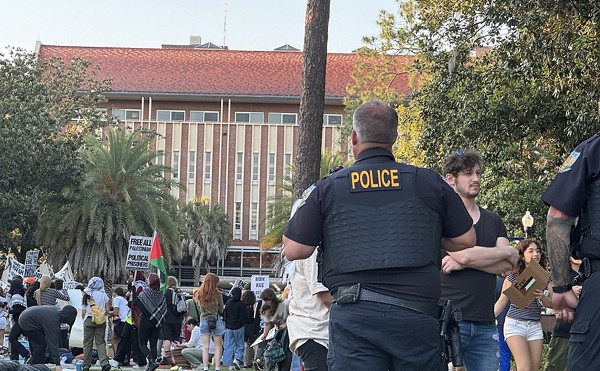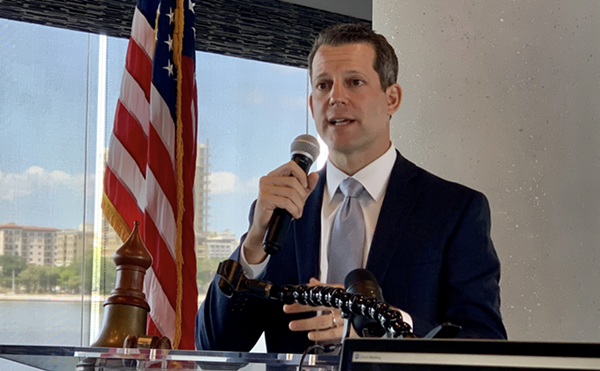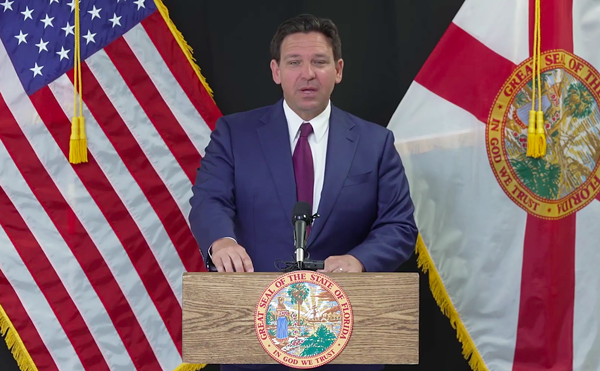Kathy Browne died last month at the age of 58. She was a woman of charity, her friends and family say. From experiences in her own childhood she learned not to take no for answer. Because she was the daughter of an ambassador, she got to travel and live in many different countries which resulted in a perspective of the world that was much more expansive than most. In addition to her own strength of character, she was a woman of faith who did her best to reflect the love of the God she served. After living in St. Thomas and Puerto Rico where her children’s private schooling cost up to $250 per child, she decided to move to the States in 1990, because the public education system was free.
Beyond her involvement as a parent, she was prompted to volunteer in a larger capacity, because of the experiences she had in her children’s classrooms. For example, according to Reverend Dr. Russell Meyer, “One day she told a school administrator that too many fourth graders had little conception of reading itself.” She was told, “All the children who need to read can read.” He says that Kathy was an education crusader from then on, and she did it all as a volunteer.
Also, in an interview with her son Joshua, he said that his older brother Jeremiah was placed in ESOL in second grade, against Kathy’s wishes, because he was bilingual. He was fluent in both Spanish and English. As this was his first year as a student in Tampa, the experience made him feel like he shouldn’t speak Spanish anymore.
As a professional tutor, and having spent many years volunteering with his mother at schools in Hillsborough, Joshua has a lot of experience with the school system. He says that it was at this time that his mother decided to dedicate herself to both helping students and holding those who misplaced and misrepresented them accountable. Her endeavor became personal and gained momentum after an ordeal in which her daughter was forced her to graduate co-valedictorian, even though her GPA was the highest at the time. He says, “After spending so much time volunteering at the school, she felt like if they could do this to her, she couldn't imagine what they were doing to children whose parents were not as involved.”
Her close friend Sandy Moy described education as Kathy’s lifelong passion. “Kathy spearheaded projects to increase Science and Math education at Middleton Magnet," she says. One such project includes the Minotaur 1369 Team, which in 2007 won a regional USFIRST robotics championship. For this program she wrote support documents, grants and press releases to market for funding and donations. For many years, at both Middleton and Howard W. Blake High School, she led programs to identify and assist students in all avenues for higher education. “Her dedication to increasing educational opportunities for minority and low-income students was unmatched; She did all of these things with intellect, grace, patience and humility- traits not easily found combined in one person,” says Moy.
Kathy was the Co-Education chair for the NAACP on 2012. Sabe Baptiste, NAACP Education Chair, and lifelong friend of Kathy, describes her as a wonderful example of a humanitarian. “She helped people be the best they could be.” Their involvement with the NAACP served as platform for which they could reach more members of the community, members of all races and religious backgrounds. Ms. Baptiste wrote the reading tutorial program which Kathy dedicated herself to executing. They hosted the Freedom Fund's Living Bridge dinner to recognize and develop relationships between people who were doing good things for members of the Caucasian, African America, Hispanic, Islamic and Jewish community. She says Kathy went to every single school board meeting in the past three years. Her relationships with the community combined with her relationships with members of the school board and the superintendent made the cause for a better educational system “more human.” She says the disparities for African-American students are more prevalent, but representing students of all races and backgrounds was not only a way to improve the system, but to improve the world. “If we take care of all of our students, we make the world a better place, says Baptiste.”
She worked at the HOPE Center, across from Middleton. She played a large part in the growth of both Men of Vision and the BEST (Brain Expansion Scholastic Training) program run by Ross Anderson and Dr. Dexter Fredrick respectively. BEST tutors and encourages underrepresented kids to pursue an education in medical and science fields. Men of Vision is a mentoring and counseling program for African American boys in middle school. She even took students to visit and tour colleges and created a program called Chat and Chew at Blake High School, where she would provide a place for kids to talk, vent and receive tutoring and advice during lunch.
Her most recent work was with the Association for the Study of African American Life and History (ASALH). She was the program committee chairperson for their Tampa Bay branch. Founded in 1915, ASALH is the world’s oldest scholarly society to focus on the research, education and status of the culture and history of people of African descent. Moy says, “Kathy’s role at ASALH was to ensure that authentic African American history would be taught to children in the public school system and the community at large, to ensure that the impact that African Americans made would be known and understood by all.”
Meyer says they worked with several groups this summer. They focused on the August school board meetings. He says the discipline and education disparity complaint with the Office of Civil Rights converged with the budget approval process. He described, “$3 billion was on the table to pay for unacceptable outcomes for large portions of the public school’s constituency. Kathy was keenly interested in seeing African American curriculum policy implemented according to the existing law.” While he was focused on the school to prison pipeline, he and Kathy quickly knew their concerns were “two sides of the same coin.” He says they believed that teaching students about their own heritage helps keep them in school and mitigates behavioral issues. “Ignoring that heritage is like ignoring the students themselves – and the disparity figures illustrate that dramatically.”
In collaboration with other groups, and just three weeks in the making, Meyer says that Kathy came up with the name of a new coalition, HELP Education (Hillsborough for Equitable and Lawful Public Education). “She insisted that education should be both equitable and implemented according to the law. In this case, she had two big concerns. African American studies were not being implemented as 30 years of state law mandated, and a high quality education was not being provided to all students as the Florida constitution guarantees. That many of the disparities seemed unlawful did not escape her, but these two – the curriculum and quality education – were undeniably being denied to students, he says.”
With a huge smile that never faltered for a second, Joshua spent over an hour reminiscing his childhood. He says that his parents were very close. “They were the very best of friends. They did everything together.” He says his mother stopped working so that she could be a homemaker and take care of her children.
He says his parents passed down to him and his three siblings both perseverance and ingenuity. On nights that they had writing assignments, after they had gone to bed, she would highlight for them in their Word document their mistakes and provide suggestions. When they woke up in the morning, they could go over their papers and decide what changes they wanted to make for themselves. “She was always there to set an example for us, he says. Academically and spiritually, they were a very big part of who we have become. “Our parents never told us you can’t do something, because…; they would always tell us why. We were always informed,” he says.
He says as a volunteer, her mentality was that if she could help teachers, they would have more time to focus on their students. “Growing up, the most remarkable thing that she taught us about education was through helping us. She served as a role model. She wasn't afraid to admit that she didn't know something. If she didn't know something, she would look it up. He says that that is a rare quality. “If you want to know something, the resources are there,” he says.
Equality in education was even a theme in her poetry. Joshua asked that an excerpt be written. From her poem entitled Diversity-
You say Black and White together: “Never!”
I say Black and White together: “Forever!”
I help you and you help me
Then in love, we’ll all be free
You may shoot me down if you so choose
But in making that choice, you’ll surely lose
Whatever chance at Life you had
Few choices you’ll ever make could be so bad…
Kathy’s fight for a better education system ended on September 20, 2014. Her friends and family urge the community to carry on her work. Joshua asks that in remembering Kathy, we focus on her drive, passion and her commitment. He asks that beyond commemorating her, we make a call to action to the community. He says, “That is what she would have wanted.” He says, “If a person has a role model, they shouldn't aspire to be them, but rather to be better than them. If you want to honor that person, you should aspire to be greater.” He says Kathy’s mentality was that there’s nothing that she did that someone else couldn't do. “You can do anything you put your mind to. You have the power to do whatever you choose to,” he says.
After a community social where members watched the documentary ‘At the River I Stand,’ in 2014, those in attendance did a World Café style group discussion. Kathy was nominated to recap the discussion. There she said, “Collaboration multiplies power. Being willing to speak up is a step worth taking. Keeping the fight going so that someone can pick it up in the future is a step worth celebrating. Getting one person to understand and agree with your point of view is a step worth celebrating.”















